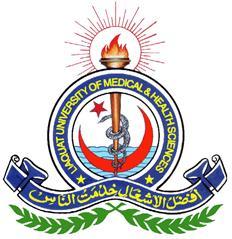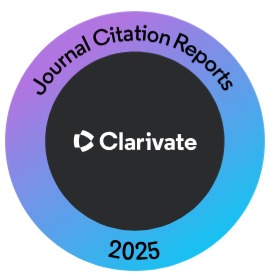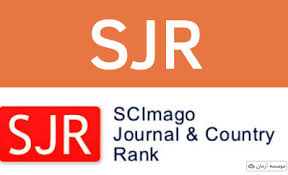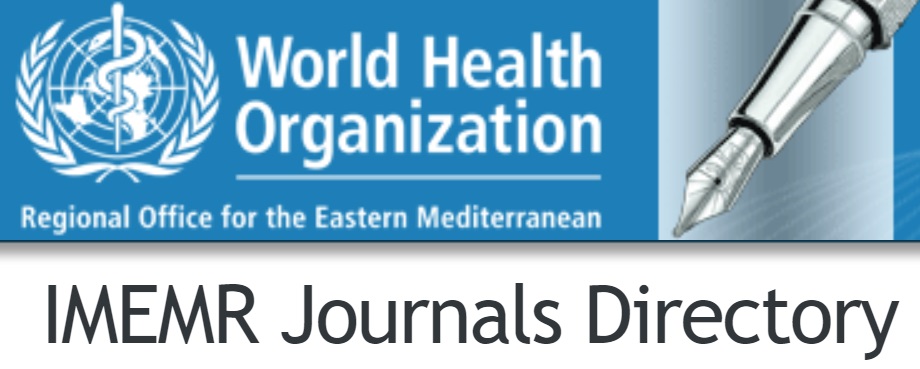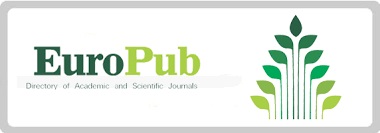Implementation of Essential Newborn Care and Factors Associated with Knowledge and Practices among Postnatal Mothers in the Slum Area of Karachi, Pakistan
Keywords:
Birth weight, breastfeeding, essential newborn care, post-natal, skin-to-skin contact.Abstract
OBJECTIVE: To determine the implementation of essential newborn care (ENC) and factors associated with knowledge and practices among postnatal mothers in the Slum Area of Karachi, Pakistan.
METHODOLOGY: This cross-sectional study was conducted in the outpatient and inpatient departments, postnatal ward/well baby clinic/immunization clinic, Jinnah Medical College Hospital (JMCH), Karachi, Pakistan, from January - June 2024. A total of 233 postnatal mothers aged between 18-35 years, within 2 months after delivery, and without complications who delivered babies (gestational age 38-42 weeks) without any congenital anomalies or disability were analyzed. A non-probability consecutive sampling technique was adopted. Data about ENC was collected on a structured and comprehensively validated questionnaire. Data was analyzed using IBM-SPSS Statistics, version 26.0.
RESULTS: In a total of 233 participants, the mean age was 26.27±4.69 years. 54 (23.2%) received health education on ENC during pregnancy, and 167(71.7%) after delivery. Fifty (21.5%) mothers practiced skin-to-skin contact, and 161(69.1%) delayed the first bath for more than 24 hours. The time of initiation of breastfeeding was within one hour, found in 70(30.0%) participants. Washing hands before and after 54(23.2%) mothers reported diaper changes. 108 (46.4%) mothers reported recognition of all danger signs.
CONCLUSION: The study concludes that implementing ENC among postnatal mothers in the slum area of Karachi is sub-optimal, with significant gaps in knowledge and practices. Key areas requiring improvement include antenatal care attendance, hygiene practices, and late initiation of breastfeeding.
References
UNICEF. Neonatal mortality. 2024. (Last updated: March 2024). Available from: https://data.unicef.org/topic/child-survival/neonatal-mortality/
UNICEF. Under 5 Mortality. (Last updated: March 2024). Available from: https://data.unicef.org/topic/child-survival/under-five-mortality/
Daba W, Alemu T, Shimbre MS, Tsegaye B. Knowledge and practice of essential newborn care among postnatal mothers in Addis Ababa City Health Centers, Ethiopia. J. Public Health Epidemiol. 2019; 11(8): 170-179. doi: 10.5897/JPHE2019.1161.
Organization WH. Child Mortality. Available from: https://www.who.int/news-room/fact-sheets/detail/levels-and-trends-in-child-under-5-mortality-in-2020.
National Institute of Population Studies ICF. Pakistan Demographic and Health Survey 2017-2018. Islamabad, Pakistan: NIPS, ICF; 2019. Available from: https://dhsprogram.com/pubs/pdf/FR354/FR354.
Organization WH. Neonatal and Perinatal Mortality: Country, Regional and Global Estimates. Geneva: WHO; 2006.
UN Inter-Agency Group for Child Mortality Estimation. Available from: https://childmortality.org/about/.
Organization WH. SGD 3: Ensure healthy lives and promote well-being for all at all ages. Available from: https://sdgs.un.org/goals.
World Bank. Mortality Rate, Neonatal (per 1000 Live Births) - Pakistan, Afghanistan, India Data. available from: https://data.worldbank.org/indicator/SH.DYN.NMRT
Memon ZA, Khan MI, Soofi S, Muhammad S, Bhutta ZA. A cross-sectional survey of newborn care practices in rural Sindh, Pakistan: implications for research and policy. J Neonatal Perinatal Med. 2013; 6(2): 137-44. doi: 10.3233/NPM-1366712.
El-Naggar DM, Madian AA, Mahrous ESY. Knowledge and Practices of Postpartum Women Regarding Neonatal Care in El-Beheira Governorate. Int. Egypt J Nurs Sci Res. 2023; 3(2): 455-468.
Memon J, Holakouie-Naieni K, Majdzadeh R, Yekaninejad MS, Garmaroudi G, Raza O et al. Knowledge, attitude, and practice among mothers about newborn care in Sindh, Pakistan. BMC Pregnancy Child. 2019; 19: 1-9. doi: 10.1186/s12884-019-2479-0.
Organization WH. World health organization regional office for the western pacific; United Nations Children's Fund. Action plan for healthy newborn infants in the Western Pacific region (2014-2020). Manila, 2014.
Abebe H, Adane D, Shitu S. Essential newborn care practice and its associated factors in Southwest Ethiopia. Arch Public Health. 2021; 79(1): 42. doi: 10.1186/s13690-021-00568-6.
Getachew T, Dheresa M, Eyeberu A, Balis B, Yadeta TA. Magnitude and Determinants of Postnatal Mothers' Knowledge of Essential Newborn Care at Home in Rural Ethiopia. Front Pediatr. 2022; 10: 860094. doi: 10.3389/fped.2022.860094.
Bryce E, Mullany LC, Khatry SK, Tielsch JM, LeClerq SC, Katz J. Coverage of the WHO's four essential elements of newborn care and their association with neonatal survival in southern Nepal. BMC Pregnancy Childbirth. 2020; 20(1): 540. doi: 10.1186/s12884-020-03239-6.
Akter T, Dawson A, Sibbritt D. What impact do essential newborn care practices have on neonatal mortality in low and lower-middle income countries? Evidence from Bangladesh. J Perinatol. 2016; 36(3): 225-230. doi: 10.1038/jp.2015.181.
Berhea TA, Belachew AB, Abreha GF. Knowledge and practice of Essential Newborn Care among postnatal mothers in Mekelle City, North Ethiopia: A population-based survey. PLoS One. 2018; 13(8): e0202542. doi: 10.1371/journal.pone.0202542.
Jana A, Saha UR, Reshmi RS, Muhammad T. Relationship between low birth weight and infant mortality: evidence from National Family Health Survey 2019-21, India. Arch Public Health. 2023; 81(1): 28. doi: 10.1186/s13690-023-01037-y.
Majumder S, Najnin Z, Ahmed S, Bhuiyan SU. Knowledge and attitude of essential newborn care among postnatal mothers in Bangladesh. J Health Res. 2018; 32(6):
Widström AM, Brimdyr K, Svensson K, Cadwell K, Nissen E. Skin-to-skin contact the first hour after birth, underlying implications and clinical practice. Acta Paediatr. 2019; 108(7): 1192-1204. doi: 10.1111/apa.14754.
Mardini J, Rahme C, Matar O, Abou Khalil S, Hallit S, Fadous Khalife MC. Newborn's first bath: any preferred timing? A pilot study from Lebanon. BMC Res Notes. 2020; 13(1): 430. doi: 10.1186/s13104-020-05282-0.
Al-Nafeesah A, Ahmed MAA, Elhory O, Mahgoub HM, Hassan BA, Al-Wutayd O et al. Knowledge, Practice, and Associated Factors of Essential Newborn Care among Sudanese Women in Eastern Sudan. Children (Basel). 2022; 9(6): 873. doi: 10.3390/children9060873.
Kuti BP, Ogunlesi TA, Oduwole O, Oringanje CC, Udoh EE, Bello S, Horn D, Meremikwu MM. Hand hygiene for the prevention of infections in neonates. Cochrane Database Syst Rev. 2023; 6(6): CD013326. doi: 10.1002/14651858.CD013326.pub4.
Leta M. Level of knowledge toward essential newborn care practices among postnatal mothers in governmental hospitals of Harar Town, Eastern Ethiopia. SAGE Open Med. 2022; 10: 20503121221076364. doi: 10.1177/20503121221076364.
Ayele AD, Tenaw LA, Kassa BG, Mihretie GN, Belay HG, Teffera AG et al. Knowledge and practice of essential newborn care and associated factors among women in Ethiopia: systematic review and meta-analysis. Reprod Health. 2022; 19(1): 172. doi: 10.1186/s12978-022-01480-0.
Downloads
Published
How to Cite
Issue
Section
License
Copyright (c) 2025 Journal of Liaquat University of Medical & Health Sciences

This work is licensed under a Creative Commons Attribution-NonCommercial-ShareAlike 4.0 International License.
Submission of a manuscript to the journal implies that all authors have read and agreed to the content of the undertaking form or the Terms and Conditions.
When an article is accepted for publication, the author(s) retain the copyright and are required to grant the publisher the right of first publication and other non-exclusive publishing rights to JLUMHS.
Articles published in the Journal of Liaquat University of Medical & health sciences are open access articles under a Creative Commons Attribution-Noncommercial - Share Alike 4.0 License. This license permits use, distribution and reproduction in any medium; provided the original work is properly cited and initial publication in this journal. This is in accordance with the BOAI definition of open access. In addition to that users are allowed to remix, tweak and build upon the work non-commercially as long as appropriate credit is given and the new creations are licensed under the identical terms. Or, in certain cases it can be stated that all articles and content there in are published under creative commons license unless stated otherwise.


